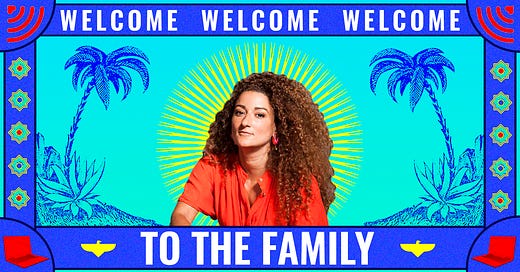How can you cultivate originality?
In theory, if your value proposition is relevant, you need just a simple demo to attract users. When the solution is useful, it’s obvious. A great video, your voice over the screen, and tada, the clients are coming! Right?
Well, (1) You’re not naturally surrounded by a big community of potential users and (2) Users are human: they want meaning, they have feelings.
You won’t go far if you don’t express yourself, not only explaining the reasons why you built your product, but letting your originality speak in every aspect of it - the name, the UI, the look & feel, the story, the convictions...
That’s not easy.
Especially if you've been working mainly in a scientific/binary framework (problem -> solution). And it’s even harder in non-English-speaking cultures, where we tend to separate form and substance. How many times have you thought that stunning storytelling rhymes with bullshit or a lack of humility?
Becoming a parody.
In order to “look professional” with no budget, I’ve seen too many founders create the exact copy of a startup website they admire. That’s how we end up with clones - the same expressions, stories, catch phrases and tones. All the solutions claim to be “Simple, efficient and fast”. That conformity leads to the opposite of your intention - it creates distrust.
That startup you admire didn’t start with such “professionalism”.
They’ve had to adapt to their growing audience. And they miss those early days when they were uncertain but free to be spontaneous, different, and “unbusinesslike”.
You’re losing the opportunity to start with a unique tone - yours.
That uniqueness starts with unexpected details, and it’s what can create bonds with your very first users. Think of Burbn, the 1st version of an app started by two young whiskey lovers - a.k.a., Instagram’s founders.
Rejection is part of the game.
In her book “Founders at Work”, Jessica Livingston interviews some of the best tech entrepreneurs, from Apple, Gmail, TripAdvisor and more, about their early days. Her conclusion: “When you do new things, people reject you (...). People like the idea of innovation in the abstract, but when you present them with any specific innovation, they reject it because it doesn’t fit with anything they already know.”
How can you cultivate originality?
By embracing what makes you, the founding team, what you are.
You can’t mimic what others are doing. The only people you benefit from observing closely in the early days are…? Your users ;) And your differences can forge true ties with your community, turning your users into ambassadors.
Most technical issues can be overcome. But when you’re facing a competitor with a solution that’s as good as yours, why would the users prefer you? Hmm… maybe because your company goes beyond just a transactional exchange. Maybe there is an attachment provoked by an authentic experience: your beliefs, your story, your way of doing things.
By finding pleasure in exploring your vision, drives and values.
In some places, it’s easier to talk openly about feelings and dreams. In others, it’s kind of weird, or just doesn’t happen at all, so you feel ridiculous for doing so.
You might not be an extrovert, comfortable with displaying your ambitious role to the world. But remember: it’s not just about you, it’s about the mission you’re leading and the people you’re helping.
So sit down with your cofounders, as often and as long as needed, to (re)define the reasons why you do what you do, your values, your culture, your way. All that doesn’t look like the typical successful company? Good for you.
I recently had a conversation with James Vincent, who accompanied Steve Jobs as well as the founders of Airbnb and Airtable in their quests to express their intentions. It’s a recorded discussion that can help you understand how to take a step back when defining your own story.
Nothing goes according to plan and the chances of failing are 90% (or more). So let’s at least enjoy the ride by fully being ourselves throughout the process.
Welcome to The Family. Applications are open for our 6-week remote batch starting in January 2021.
To finish 2020 on a high note, one Director from The Family sends you a startup lesson each day all the way through Xmas!




